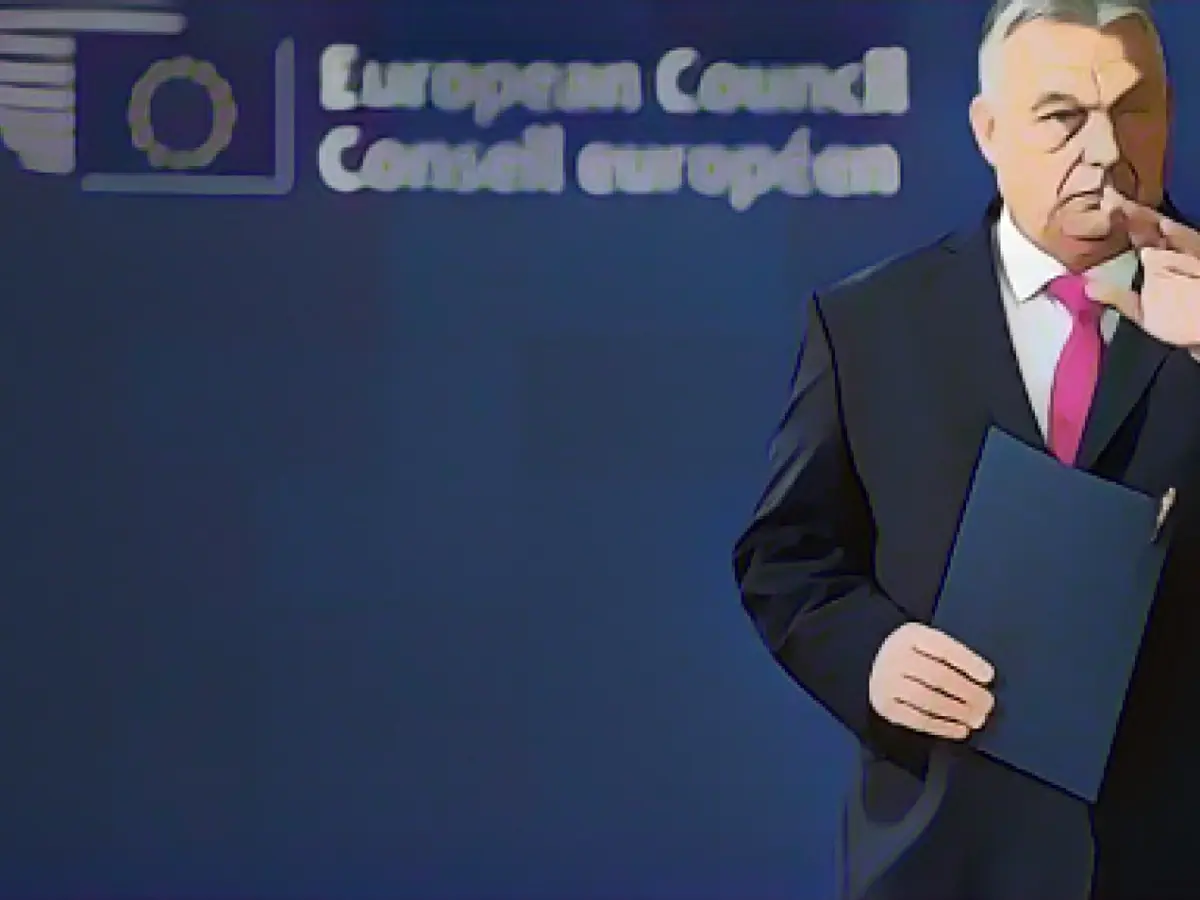EU Summit: Orban's Blockade Stirs Controversy
At the recent EU summit in Brussels, Hungarian Prime Minister Viktor Orban stirred up controversy by blocking the approval of a 50 billion euro financial aid package for Ukraine during the night.
The unexpected veto by Orban halted the other heads of state and government's plans to provide aid to Ukraine as planned. The leaders had hoped to continue the negotiations on the aid package in January, with EU Council President Charles Michel expressing his optimism for reaching a unanimous agreement during the next summit.
Orban's defiant stance was celebrated on the Hungarian X-portal. The Prime Minister hailed his victory against additional funding for Ukraine and the EU's multi-annual financial plan, stating that the discussions would resume in January "after proper preparations."
Initial Plans Affected by Veto
The EU had set aside 17 billion euros in grants and 33 billion euros in loans to support Ukraine over the next four years. Additional funds were also intended for industrial competitiveness and migration policy, according to requests from countries such as Italy. These plans, however, have been put on hold due to Hungary's veto.
Before the summit, Orban had already criticized the EU Commission's budget proposals, labeling them as "unfounded, unbalanced, and unrealistic." Initially, the other heads of state and government had hoped to persuade him to agree to a compromise.
Procedural Trick in Accession Talks Dispute
A surprise breakthrough emerged in another area of dispute. Orban allowed the start of accession negotiations with Ukraine by abstaining from the decisive vote. Thanks to a procedural trick devised by German Chancellor Olaf Scholz and outgoing Dutch Prime Minister Mark Rutte, Hungary was able to maintain its no to the accession negotiations without derailing the process altogether.
Orban's Motives
Orban's reasons for not approving the financial aid package remain unclear. While the decision to start EU accession negotiations may have posed no substantial financial risk to Hungary, the veto on financial matters could have potentially cost Hungary dearly.
A Positive Outlook for Ukraine
Despite the setback, Ukrainian President Volodymyr Zelenskyy remained optimistic. After accepting Orban's veto, he expressed his confidence in the next EU summit, viewing it as an opportunity to further strengthen Ukraine's relationship with the EU.
Enhanced Sanctions on Russia
One positive outcome of the EU summit was the agreement on new sanctions against Russia. The new package includes an import ban on diamonds and a tightening of the price cap on Russian oil exports to third countries. The sanctions also target individuals and organizations supporting the Russian war of aggression against Ukraine.
Reactions to the EU Summit
Belgium, with its significant diamond industry in Antwerp, initially opposed the EU's import ban on diamonds from Russia but later expressed its support for the new sanctions. Understanding the implications of Orbán's veto and the importance of backing Ukraine, Belgium chose to reconsider its position.
Conclusion
Orbán's actions at the recent EU summit created conflict among EU members, delayed financial aid to Ukraine, and prompted the strengthening of sanctions against Russia. Despite the obstacles, the EU and Ukraine continue to work towards deeper cooperation, with the next EU summit serving as a critical step in resolving the financial aid issue and further integrating Ukraine into the EU.








